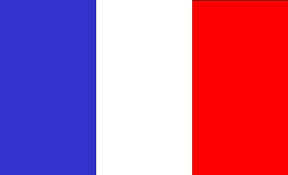What is
Autofiction?
But fictive things
Wink
as they will’
Wallace
Stevens
‘Communal
myths evolve to merge reality and fiction in order to create a cultural
identity. Personal mythologies draw on facts to design a fictional one’*. This
imaginary character - be it Joyce’s Stephen Daedalus or Proust’s Marcel –
appears to represent the author, but is not him.
In
France on the advent of post-modernism the demarcation between autobiography
and fiction became increasingly uncertain. For writers trying to make sense of
their lives the emphasis shifted ‘from being a pilgrim in this world to being
an entity fabricated into it. The material could be strictly autobiographical
but the manner was fictional. In 1977 Serge Doubrovsky named the genre
autofiction’*.
‘By transposing details of one’s life into
a fictional text to create a character, writers of autofiction are not
begetting a personal legend. On the contrary, the writer is at one remove from
his/her essential self by means of a mask. This is in keeping with a culture
that prizes privacy and defends confidentiality, but more importantly lends it
a certain authenticity… ‘Art making’, according to Christian Boltanski (1972),
‘is not about telling the truth, but making the truth felt’’ .
French
criticism tends to complicate what seems obvious. Fictionalised autobiography
always existed. A debased form would be writing to conceal the truth. This in
life is so common it could be considered normal. Differences in degree only separates
the white lies that spares others, the self-deceptions that props up our
self-esteem, and the cheating of a Donald Crowhurst (would-be around the world
yachtsman) or Enrico Marco (the false concentration camp survivor). Lila Brik
in defence of Mayakovsky, who romanced the truth of his life, heightening it
into poetry, made the distinction between ‘honest lying’ and ‘dishonest
lying’. ‘Honest lying’ fortifies the
truth by embellishment. The ‘dishonest lying’ is self-serving evasion of it.
Still the ‘dishonest’ once unravelled leaves the truth standing naked and
ashamed. . The troubled waters of Crowhurst’s autofiction are true to reality.
Getting to the truth can be left at worst to the Law, and at best to the
philosophers, but psychiatric evidence tends to give the facts a deeper
dye.
Paul Potts
prefaced his autobiographical Dante Called You Beatrice
(1960) by apologising for his
unreliable memory, ‘My book is not factually true, but it contains the
atmosphere of truth.’ This is autofiction as ‘honest lying’. Rather more
sublimely Kierkegaard told the truth about his life through a gauze of
pseudonyms and parables and justified it with a warning, ‘The author has the right to use what he
himself has experienced. But he must keep the truth to himself and only let it
be refracted in various ways.’ (‘The Law of Delicacy’, Soren Kierkegaard,1832).
‘ Writing is not a truth telling exercise, it is the truth turned inside out and throbbing gently.’ I attributed this to Berthold Brecht in an imaginary conversation. I hesitated to go so far under my own name.
*Claire Muchir, Narcisse, 2014.
